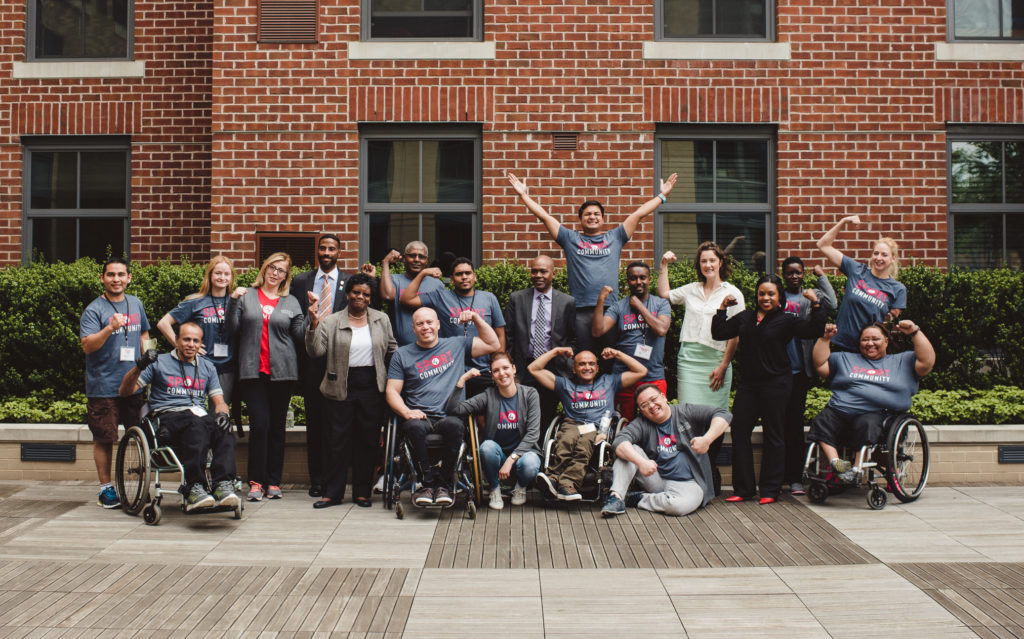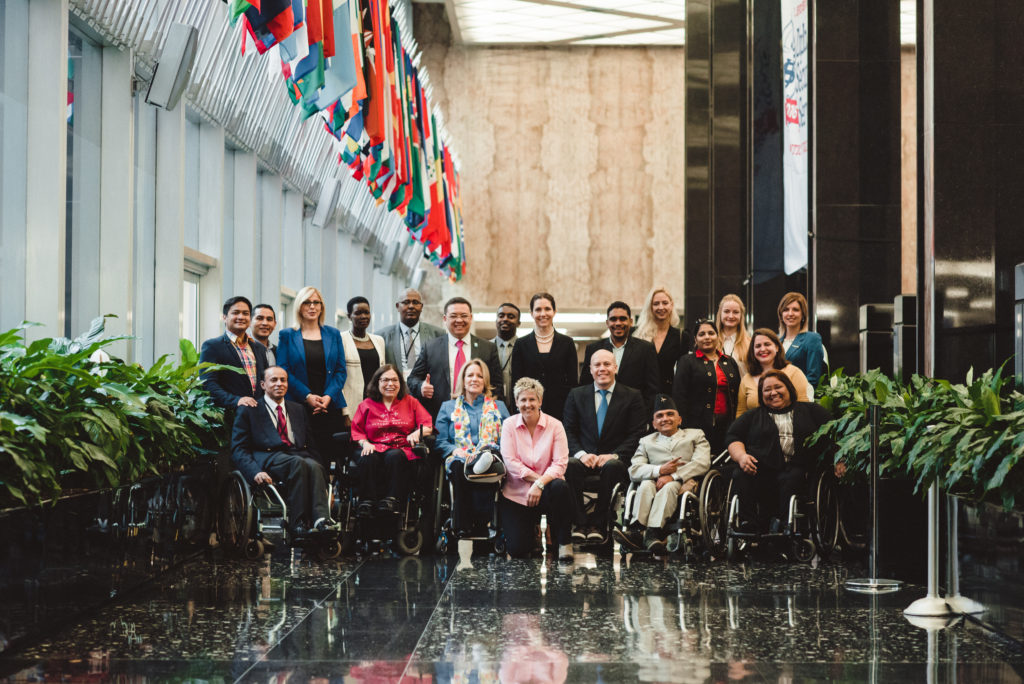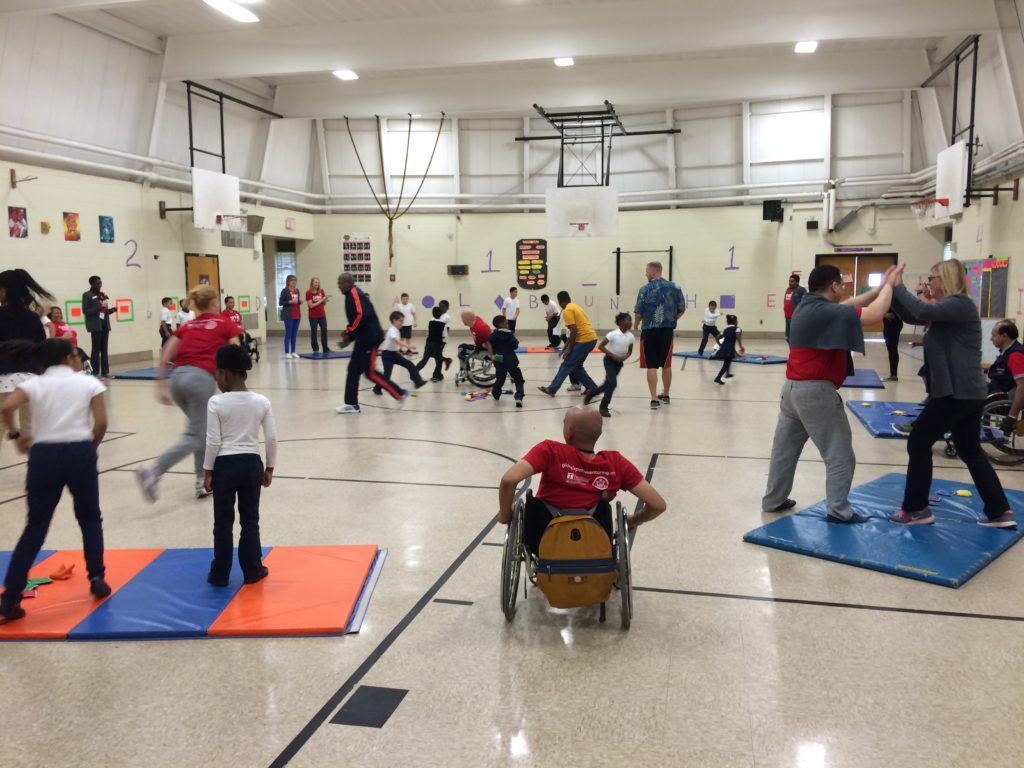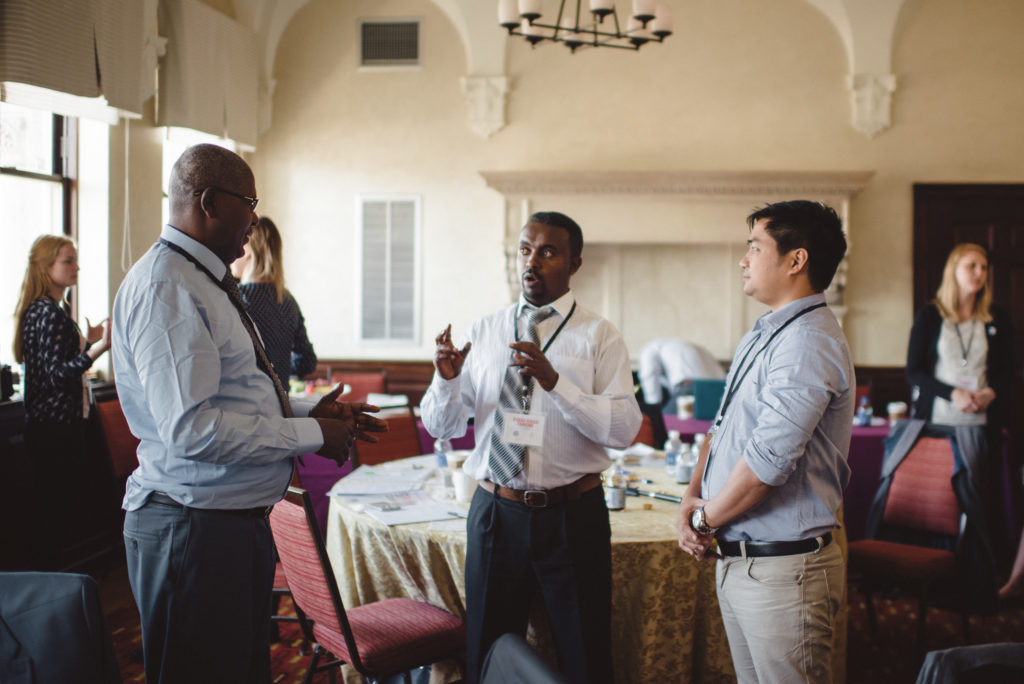Sport for Community 2016: Looking back at Orientation Week
By Brian Canever, Center for Sport, Peace, & Society May 26, 2016In a hotel room at the end of Orientation Week, Valeria Filiaeva reflected on the moments before arriving to Washington DC to join 14 other international leaders for a program she is certain will shape her future and that of many Belarusians.
“When you come to a new place, you can never be sure exactly what is going to happen,” Filiaeva said. “But when I was sitting in the airplane from Belarus I was writing in my diary about my life over the past two months. And the last thing I wrote was: ‘Yes, for sure, this program will change your life.'”
A wheelchair tennis coach and television journalist from Belarus, Filiaeva is one of 15 emerging leaders participating in the Sport for Community (S4C) program held under the banner of the U.S. Department of State Global Sports Mentoring Program. A compliment to the U.S. Department of State and espnW’s program to empower women and girls through sports, S4C empowers international leaders in the disability sport sector to create greater inclusion, accessibility, and opportunities for people with disabilities in their home countries.
From May 15 to May 21, 2016, emerging leaders from 13 different countries including Guatemala, Ecuador, Ethiopia, Nepal, Russia, and the Philippines arrived in DC for an Orientation Week that included a wide range of programming. There were new and old icebreakers to help the budding global family learn more about each other. Drs. Sarah Hillyer and Ashleigh Huffman of the University of Tennessee’s Center for Sport, Peace, & Society, as well as Dr. Josh Pate of James Madison University’s Hart School of Hospitality, Sport and Recreation Management, facilitated a range of curriculum sessions focused on challenges faced by people with disabilities and how to create Action Plans to spark measurable, positive change. Participants also visited the Department of State and participated in sports activities and panels with the YMCA Anthony Bowen, Joan Joyce of MedStar National Rehabilitation Network, DC Impact Self-Defense, and Prince George’s County Public Schools.
“When you get to know new cultures and new people you’re just a little bit closed at first,” Filiaeva said. “But the UT team helped us open up and day-by-day we got to know each other—our challenges, our organizations, our work—and I started to get the information I need to achieve my dream to get youngsters in Belarus involved in wheelchair tennis.”

Emerging leaders pose for a photo with leaders from the YMCA Anthony Bowen and YMCA of Metro Washington
John Paul (“JP”) Maunes, the founder of Philippine Accessible Deaf Services and a prominent advocate for deaf rights in the Philippines, agreed with Filiaeva on the importance of the relationships he began to develop in the U.S. capitol.
“I’ve been a part of other programs with people from other cultures,” Maunes said. “But the one thing that separates this program is the value of family. In other programs, there is this sense of competition and bragging. Here everyone is on the same page and open to each other to the point that in the first two days we already felt like we had known each other for a very long time. It was really surprising to experience this from Western and American culture, this bond of family and friendship.”
Like Filiaeva and many of the other emerging leaders, Maunes volunteers much of his time to work with a community that is underserved and often excluded from participation in the rest of the society. He said that the burden of his advocacy for the deaf community often weighs heavy on his shoulders and it is easy to feel lonely and like the sole voice crying out for change in this field.
“With my advocacy work and work in the office, I was burned out and at the point where I was getting ready to quit, focus on my personal life, and return to my nursing career,” Maunes said. “But when I met my brothers and sisters here in the GSMP I felt so refreshed and reassured that I was not alone. People from different parts of the world face the same feelings and thoughts that I’ve encountered. The first day of Orientation it felt like a sanity break for me.”

U.S. government officials and S4C emerging leaders at the Department of State
Filiaeva, Maunes, and the rest of the emerging leaders visited the State Department to meet with Assistant Secretary of State Evan Ryan, as well as participate in a panel with disability rights advocates from within government: Judy Heumann, special advisor for international disability rights, Maria Town, associate director for the Office of Public Engagement, and Day Al-Mohamed, senior policy advisor for the Department of Labor. While there, they learned about the American with Disabilities Act and the long process to secure equal rights and treatment for people with disabilities in the United States.
But, the lessons didn’t stop at the highest level. In various adapted sports sessions, they also learned how physical educators and trainers work to be fully inclusive of children and adults with physical, intellectual, and emotional disabilities. To end their week, they visited two public schools in Prince George’s County, Maryland to see firsthand how teachers are integrating physical education classes, as well as partnering with Special Olympics to give children with severe disabilities the chance to enjoy sports with their peers, family members, and the community.

Emerging leaders participate in an integrated physical education class at James H. Harrison Elementary School
“I’ll never forget the visits to the schools,” Maunes said. “In the Philippines, we’ve been talking about Special Olympics and providing sports opportunities for the severely disabled. But, these are just theories. To actually see it in front of your eyes and have direct contact with people who experience it everyday―that cannot be replaced.”
Maunes believes that Orientation Week prepared him for the Action Plan he will develop during a three-week mentorship with Derek Daniels and Stephanie Kanter of Rehabilitation Institute of Chicago. Filiaeva, who will spend her three weeks with Mary Patstone and Dr. Cheri Blauwet of Spaulding Rehabilitation Network in Boston, exchanged regular messages with her mentors prior to arriving and had a schedule of meetings and activities set in place to help her achieve her own goals of growing youth participation in wheelchair tennis.
The pair agreed there was no way to predict what they would encounter during the first week of S4C. But, if they had to advise participants in future classes of the Global Sports Mentoring Program, they’d remind them to be flexible, confident, open-minded, and ready to enjoy the experience.
“Once you’re selected for this program then you are the most qualified person to participate,” Maunes said. If I could advise them of one thing, it would be to just be yourself. Your advocacy speaks for itself and you’ll be around people who do the same work.”
Filiaeva put it more plainly: “Don’t think that it’s going to be easy! Because you have to gain what is given. Don’t lose your concentration because you are learning every moment. If you’re very involved, be ready for everything.”

Deaf rights advocates Alemayehu Teferi and Eyasu Hailu (Ethiopia) with JP Maunes (Philippines)
